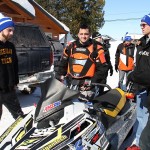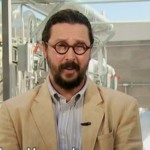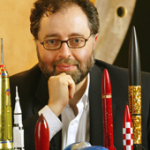 The Mechanical Engineering-Engineering Mechanics Department is
The Mechanical Engineering-Engineering Mechanics Department is
a partner with the Keweenaw Research Center for the SAE Clean Snowmobile Challenge held at Michigan Tech. A page leading to the results, news stories and photo Galleries is provided by the department. Links to 2014 Results Pictures and Videos
 The Department of Mechanical Engineering – Engineering Mechanics Graduate Seminar Series:
The Department of Mechanical Engineering – Engineering Mechanics Graduate Seminar Series:
Thursday, Mar. 6, 2013 4:00 – 5:00 p.m. Room 103, EERC Bldg.
Professor Andrea Mammoli, Director of the Center for Emerging Energy Technologies, University of New Mexico
Title: Turning Power Distribution Feeders into Microgrids: Challenges & Opportunities
Photovoltaic power generation is almost at grid parity. Electric vehicles are gaining popularity. Smart meters, smart thermostats and many other clever devices are being installed at rapidly increasing rates, replacing old equipment. At the same time, every time bad weather happens, large parts of the grid fail, and days go by before normality is restored. Even houses with undamaged rooftop photovoltaic systems have no power! Our increased reliance on electricity to drive all kinds of devices and machinery has, in fact, made us more vulnerable to disruptions in service. An important reason for this state of affairs is that the grid is not taking advantage of the information that is available through these myriad devices, and is operating largely as it has been for decades. On the other hand, managing information from millions of devices is not something utility companies are able or willing to do. A possible solution is to localize both information management and distributed power generation at the distribution feeder level, turning it into a microgrid. This would be able to provide basic services when islanded from the grid, and also to provide ancillary services to the grid as needed to help prevent grid-wide disruption. The problem is one of resource management: how much local generation is needed, how much and what storage, and how is power flow managed and coordinated? Also, what are the changes to infrastructure that would be needed to make all power distribution feeders into microgrids? Some of the answers will be provided as a result of a research program that started in New Mexico several years ago at Mesa del Sol, a Greenfield development south of Albuquerque that will ultimately be the home to 100,000 residents, who will live, work and play there. Studio14, a power distribution feeder that connects various innovative distributed power system, is used as a basis for studying how we can go from 19th century power to 21st century power. In this talk, we will provide examples from several ongoing projects that show how it is possible to achieve the goal of a clean, resilient power system at reasonable cost.
Andrea A. Mammoli is Professor of Mechanical Engineering, and Director of the Center for Emerging Energy Technologies at the University of New Mexico. He also holds a secondary appointment in the Department of Electrical and Computer Engineering. Mammoli obtained his Bachelor of Engineering and Doctor of Philosophy degrees from the Department of Mechanical and Materials Engineering at the University of Western Australia. After two years as Director funded postdoctoral fellow at Los Alamos National Laboratory, in 1997 Mammoli joined the University of New Mexico as Research Assistant
Professor. Until 2004, Mammoli conducted research in flow of heterogeneous materials, using both experimental techniques (nuclear magnetic resonance, particle image velocimetry and rheometry) as well as high-performance direct numerical simulation using primarily boundary element techniques. Stimulated by a DOE-sponsored project on CO2 sequestration, and by a sabbatical year at the Università Politecnica delle Marche in Italy, in 2005 Mammoli steered his research activities to the area of energy systems, beginning with a project to refurbish and modernize the solar-assisted HVAC in the UNM Mechanical Engineering building. This initial effort spun off many related projects, dealing with the interaction between buildings and the electric power grid, especially concerning how buildings can enable higher levels of renewable energy from all sources. Mammoli collaborates with the utility industry and national laborarories (Sandia, Berkeley and Los Alamos) on various demonstration projects and testbeds designed to bring new technologies to mainstream operations.
At the banquet for the Graduate Research Colloquium 2014 ME-EM Graduate students won the major awards. The main events of this symposium were a Poster Presentation Session and a Research Colloquium sponsored
by the Graduate Student Government
There is a report for the Graduate Research Colloquium 2014 with photos and awards.
 The ME-EM Graduate Seminar guest speakers on Thurs. Feb. 27 at 4:00 in 103 EERC will be Dr. Edgar Choueiri from Princeton University.
The ME-EM Graduate Seminar guest speakers on Thurs. Feb. 27 at 4:00 in 103 EERC will be Dr. Edgar Choueiri from Princeton University.
Title: 3D Audio
Starting with a brief review of the three main methods for 3-D sound reproduction over loudspeakers: 1) Wave Field Synthesis, 2) Ambisonics, and 3) Binaural audio through two loudspeakers (BAL), we focus on recent advances with the third method. I will show that crosstalk cancellation (XTC) allows BAL to deliver to the listener the necessary cues for real 3-D audio but that it inherently imposes an intolerably high spectral coloration on the audio. I will describe recent breakthroughs, which allow producing optimized XTC filters that impose no spectral coloration. I will then discuss the two other problems that have retarded the commercialization of XTC: the fixed and single sweet spot problems. I will show how the first problem is solved through advanced head tracking; and the second problem is solved using head tracking and phased array speakers, allowing the delivery of high-spatial-fidelity 3D audio to multiple moving listeners in real listening rooms. Following the talk, there will be a demo with playback of recorded music and natural sounds.
Edgar Choueiri is Professor of Applied Physics at at the Mechanical and Aerospace Engineering Department of Princeton University, and Associated Faculty at the Department of Astrophysical Sciences, Program in Plasma Physics. He is also Director of Princeton University’s Engineering Physics Program and Director of both the university’s Electric Propulsion and Plasma Dynamics Lab and its 3D Audio and Applied Acoustics (3D3A) Lab. He is the author for more than 175 scientific publications and the recipient of numerous awards and honors. His recent work on 3D audio has been featured by BBC Radio, NPR, The New Yorker magazine, The Discovery Channel, and The Atlantic magazine. His BACCH 3D Audio technology has been licensed by Princeton University and is commercially available in consumer and professional audio products.
 Mechanical Engineering – Engineering Mechanics Graduate Seminar; Thursday, Feb. 20, 2014 4:00 – 5:00 p.m. Room 103 EERC Bldg.; Steven A. Walton, PhD; Professor of History, Michigan Technological University
Mechanical Engineering – Engineering Mechanics Graduate Seminar; Thursday, Feb. 20, 2014 4:00 – 5:00 p.m. Room 103 EERC Bldg.; Steven A. Walton, PhD; Professor of History, Michigan Technological University
Title: Engineering the Past: Using Modern Engineering to Understand Historical Technologies
Amazing technical tasks have been accomplished in the past, from wonders like Stonehenge to the Wright Brothers biplane, but usually with little to no framework that we could conceive of as ‘science’. Modern engineering, on the other hand, has a vast range of scientific information with which to design and analyze new developments in technology, but it rarely stops to look back at how things worked in the past. These techniques can, however, offer great insight into historical technology, but it is often overlooked by historians who don’t know modern science and by engineers who don’t consider historical topics legitimate areas for analysis. This presentation will give a number of examples of historic technologies that have been recreated and analyzed with varying levels of engineering science, and then describe an ongoing research project on the “Origins of Firepower” that seeks to understand how early firearms were made, used, and understood. In particular, a number of research opportunities will be highlighted with regard to pre-modern gunpowder manufacture and combustion, as well as early artillery metrology and ballistics.
Dr. Walton holds degrees in Mechanical Engineering (B.S. Cornell; M.S. Caltech) and the History of Science and Technology (M.A., Ph.D ., Univ. of Toronto). He is own research on the history of technologies and the industries that made them spans the Middle Ages to the nineteenth century, and he works on both European and American topics. Most recently, he has two relevant projects underway that will appear in the talk: he is part of the Early European Guns and the Origins of Firepower research groups based in the UK and Denmark and in engaged in a series of surveys and projects to understand how gunpowder weaponry from the late 15th and 16th centuries behaved; in his work on 19th-cetntry American ordnance foundries, he is studying how the early understandings of strength of materials before the Civil War influenced artillery design and manufacture. He is long-term goal is to help find places where historical studies and engineering science can come together fruitfully to answering interesting historical questions.
 The ME-EM Graduate Seminar guest speakers on Thurs. Feb. 13 at 4:00 in 103 EERC will be Dr. David Harvey from Ballard Power Systems.
The ME-EM Graduate Seminar guest speakers on Thurs. Feb. 13 at 4:00 in 103 EERC will be Dr. David Harvey from Ballard Power Systems.
Title: Challenges, Opportunities, and Open-source A perspective on Fuel Cell simulation for performance and durability
Proton Exchange Membrane Fuel Cells have been a prominent part of the alternative energy landscape for a considerable length of time. The challenges facing the technology are generally categorized into three main areas: Cost, Performance, and Durability. These three areas are for the most part largely intertwined, as changes in materials or designs that improve one area invariably have, for the most part, a negative effect on the others. Of particular focus in recent initiatives has been the catalyst layer, specifically the performance and durability of a three part system of a supporting particle, nano-catalyst, and ionomeric “binder”. To date, very few commercial numerical codes exist that can adequately describe state-of-the-art PEM fuel cell performance or durability. To a large extent this is a product of the speed at which the materials development and theoretical understanding is moving, such that commercial codes tend to lag in capability as the “investment” to stay current is immense. Open-source initiatives have become commonplace in many areas, one of which is computational fluid dynamics. The open nature of these codes has led to the development of “current” sets of theory and physics in various application areas and the community nature of the projects enables and encourages leverage in other areas of engineering and design. This methodology has been applied to the development of a free and open-source software initiative, FCAPOLLO that has been built on a free and open-source CFD package.
David is a researcher in the field of alternative energy. He has been working in the area of proton exchange membrane (PEM) fuel cells since 2002 with a focus on the development of numerical simulations for performance and durability. In 2005, David began working for Ballard Power Systems in Burnaby, BC on the development of simulation codes to predict the performance of membrane electrode assemblies (MEAs). During that time, he and his group, in coordination with researchers at Queen’s University in Kingston, Onario, were the first to develop a stoichastic technique for the direct numerical simulation of catalyst layers. This work transitioned into the U.S. Department of Energy project, “Microstructural Mitigations Strategies: Morphological Simulations and Experimental Approaches” in which a series of simulations at scales ranging from nano to macro were coupled in a multi-scale modelling methodology in order to assess and predict the performance and degradation of carbon-supported platinum nano-catalysts. His current area of foucs is on the development of the software derived from the U.S. Department of Energy Project, FC-APOLLO. FC-APOLLO is a free, open-source fuel cell design software built in the opensource CFD package
OpenFOAM (trademark of OpenCFD).
Michigan Technological University’s online graduate programs in business and engineering rank in the top 40 of such programs nationwide. 2014’s best online rankings, released today by US News and World Report, rated Michigan Tech’s online graduate engineering program 35th of 74 programs and Tech’s online MBA program placed 36th of 239 programs
 A graphene water balloon may soon open up new vistas for scientists seeking to understand health and disease at the most fundamental level.
A graphene water balloon may soon open up new vistas for scientists seeking to understand health and disease at the most fundamental level.
Electron microscopes already provide amazingly clear images of samples just a few nanometers across. But if you want a good look at living tissue, look again.
“You can’t put liquid in an electron microscope,” says Tolou Shokuhfar, of Michigan Technological University. “So, if you have a hydrated sample—and all living things are hydrated—you have to freeze it, like a blueberry in an ice cube, and cut it into a million thin pieces, so the electrons can pass through. Only then can you image it to see what’s going on.”
 The ME-EM Graduate Seminar guest speakers on Thurs. Jan. 30at 4:00 in 103 EERC will be Dr. Samveg Saxena from Lawrence Berkeley National Laboratory.
The ME-EM Graduate Seminar guest speakers on Thurs. Jan. 30at 4:00 in 103 EERC will be Dr. Samveg Saxena from Lawrence Berkeley National Laboratory.
Title: ‘Powertrain Technologies for a Climate Constrained World: Advanced Engines, Vehicle Electrification and Vehicle-Grid Integration’.
Advanced Engines, Vehicle Electrification and Vehicle-Grid Integration Vehicle transportation accounts for ~23% of global energy use, significant greenhouse gas emissions, and a substantial amount of harmful urban pollutants. Many competing technology options exist to mitigate the growing transportation challenges, and this seminar presents a high-level overview of research at Lawrence Berkeley National Laboratory in various powertrain technology areas.
In engines: Low temperature combustion (LTC) is one promising direction for high efficiency and low emission engines for vehicles of the future. This seminar presents an overview of a recent review article in the journal “Progress in Energy and Combustion Science” which can be found at: http://dx.doi.org/10.1016/j.pecs.2013.05.002. The article reviews fundamental phenomena governing the performance of LTC engines and uses this as a foundation to discuss promising directions in LTC engine technology and gaps in current literature.
In vehicle electrification and vehicle-grid integration: This seminar introduces the LBNL Vehicle-to-Grid Simulation (V2G-Sim) platform, which provides a systematic framework for understanding how vehicles impact the electricity grid and how vehicle charging and V2G can be controlled to enable optimal grid integration. In powertrain innovations for the developing world: This seminar discusses how powertrain simulation can be used to design better vehicles for rapidly growing developing world markets.
Dr. Saxena is a research scientist at Lawrence Berkeley National Laboratory (LBNL) where he leads a vehicle powertrain research program. Sam completed his Ph.D in Mechanical Engineering at UC Berkeley in 2011 where he led several studies on innovative engine technologies for higher efficiency combustion, including LTC, microwave-assisted spark ignition, and cylinder deactivation strategies. Using this experience, Dr. Saxena has provided the technical foundation to secure over $2.8 Million in engine and powertrain research funding from the US DOE, California Energy Commission and other agencies. In early 2012, Dr. Saxena joined LBNL working on modeling of vehicle powertrain systems. Prior to beginning his Ph.D, Dr. Saxena worked in industry on engine and vehicle powertrain research at the Toronto-based companies: Magna Powertrain Engine Technologies Group, and Multimatic Technical Center. Dr. Saxena has been recognized in the Canadian House of Commons for his leadership excellence and has several awards for his demonstrated excellence in teaching and research, including the NSERC Canada Graduate Scholarship, and serves as a reviewer, session organizer, and editorial board member for leading conferences and journals in combustion, engines and powertrain technologies. After hours, Sam enjoys trail runs in the hills around LBNL.
Marty Lagina made his living through natural resource exploration. Then the 1977 Michigan Technological University ME-EM alumnus and Michigan native did some unnatural exploring to solve a 200–500 year old mystery. Featured on the History Channel, Lagina , his family and friends attempted to solve the “Curse of Oak Island,” based on the legend of a Nova Scotia island
MORE